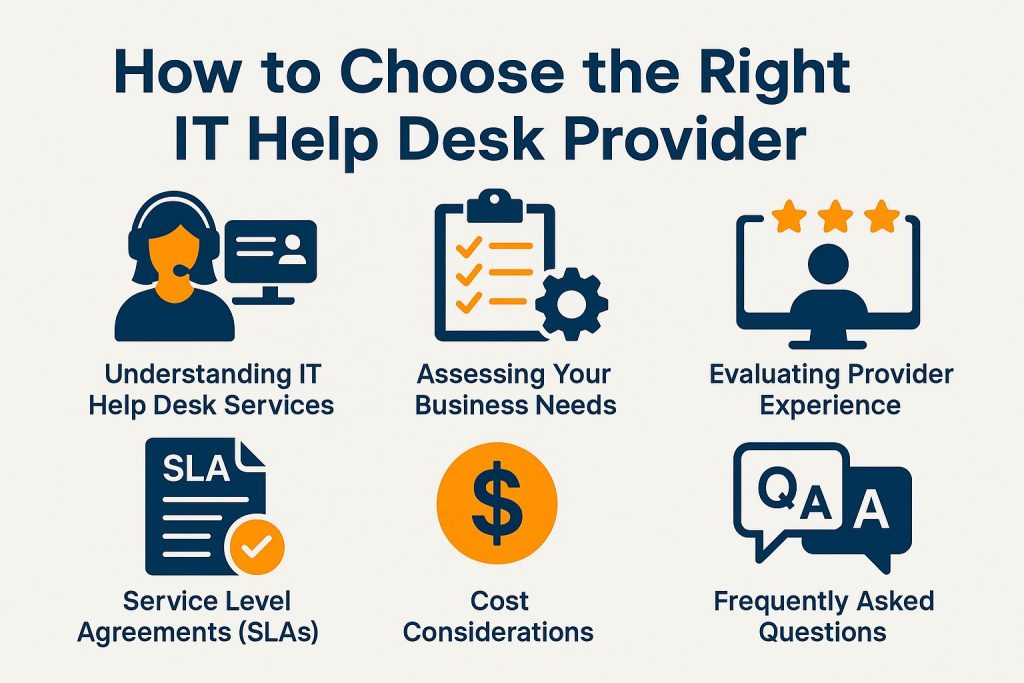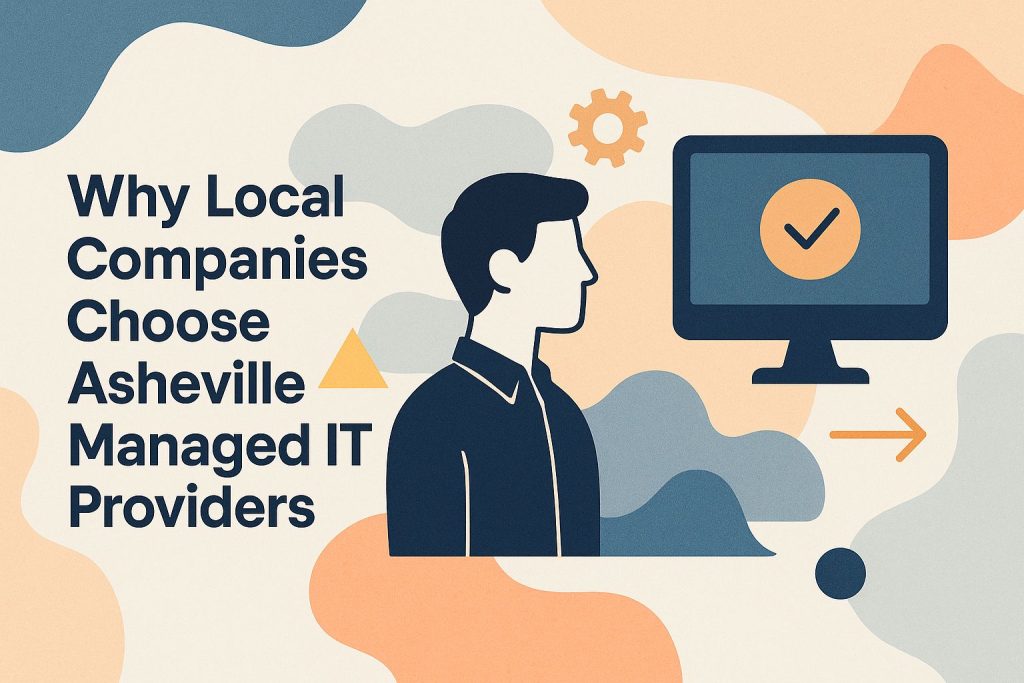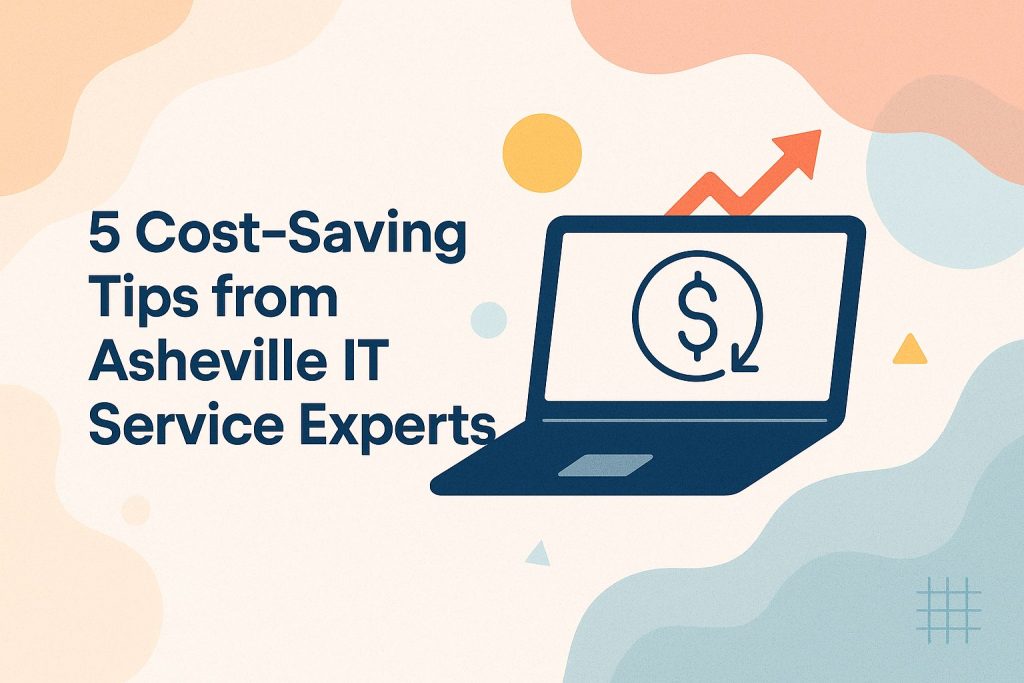How to Choose the Right IT Service Provider in Asheville NC
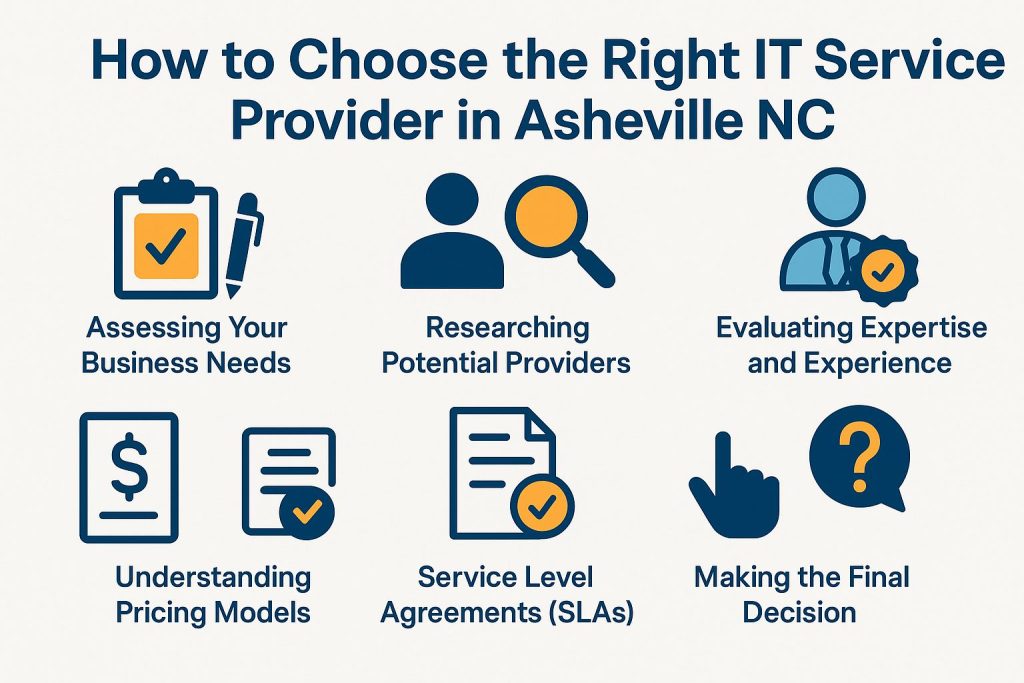
Choosing the right IT service provider is crucial for business success in Asheville, NC. With the increasing reliance on technology, understanding how to evaluate potential partners is paramount. This guide explains how to assess business needs, research providers, and understand key aspects like expertise, pricing, and SLAs. It helps businesses make informed decisions.
Assessing Your Business Needs
Understanding specific IT needs is essential for selecting the right provider. This ensures the provider’s offerings align with your operational goals.
Assessing your business needs is the first step in choosing the right IT provider. Understanding specific business IT needs is essential for selecting the right IT service provider, as it ensures that the provider’s offerings align with the organization’s operational goals and IT strategy. To gain further insight into how these strategies can benefit your business, you might consider exploring the benefits of partnering with a managed IT services provider.
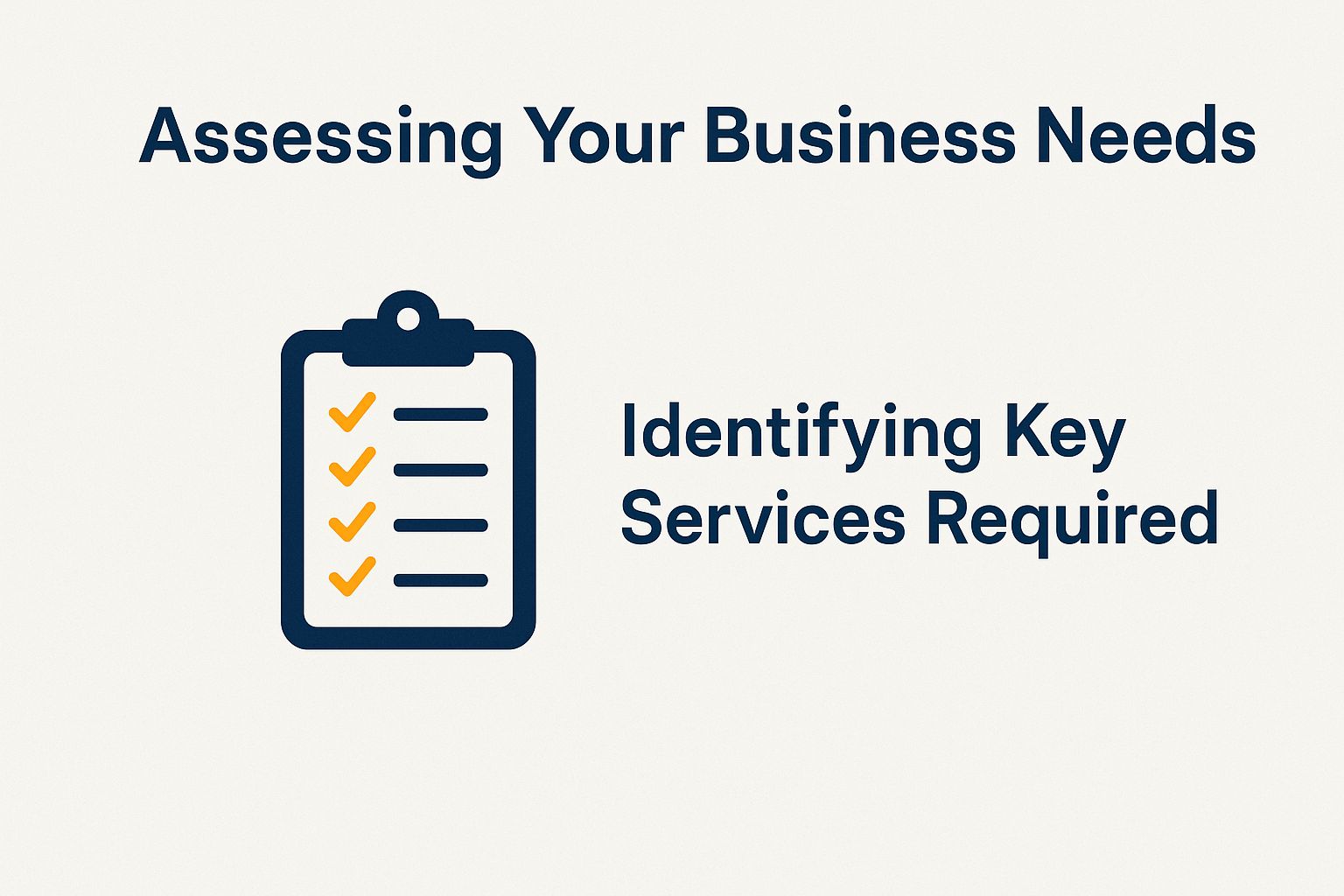
Identifying Key Services Required
The first step is to catalog the core IT services required by the business. These may include managed IT services, network security, cloud computing, and help desk support.
Once these essential services are identified, a comparison tool such as G2 or Capterra can be utilized to assess vendors based on specific criteria, including cost, features, and user reviews.
For cloud services, consider solutions like Google Drive for file storage. Norton Antivirus can enhance your cybersecurity.
Maintaining an Excel spreadsheet is advisable to track the services currently in use versus those needed, ensuring comprehensive coverage and effective budget allocation.
Researching Potential Providers
Research potential IT service providers thoroughly. This ensures they align with your specific business needs and industry standards. Conducting thorough research on potential IT service providers is essential to ensure that they align with specific business needs, IT governance, and adhere to industry standards. Researching potential providers helps ensure they fit your business needs.
Evaluating Expertise and Experience
Assess the provider’s reputation and industry experience. This ensures they can address your technical challenges effectively. Evaluate the expertise, reputation, and experience of potential providers. Assessing the provider reputation and industry experience of potential IT providers is crucial to ensure they are well-equipped to address specific technical challenges and industry requirements.
A thorough review of case studies and portfolios can reveal the types of projects they have successfully completed. It is important to check for industry certifications, such as CompTIA or Microsoft, as these reflect the providers’ knowledge and skills.
Additionally, considering their years in business is valuable; providers with a minimum of five years of experience typically demonstrate a proven track record. Utilizing platforms like LinkedIn can assist in verifying professional credentials and obtaining recommendations.
This comprehensive analysis not only aids in making an informed decision but also instills confidence in the chosen IT partner’s capability to deliver effective solutions. For an extensive analysis of this trend, our deep dive into the benefits of partnering with a managed IT services provider highlights key advantages and insights.
Understanding Pricing Models
Understanding pricing models helps you budget effectively. Knowing the pricing models helps you budget effectively. Understanding the various pricing models offered by IT service providers enables businesses to make informed decisions that align with their budgets and financial objectives.
Common pricing structures include these cost-effective options:
- Hourly rates
- Monthly retainers
- Project-based fees
- Service customization
Hourly rates typically range from $100 to $250, depending on the provider’s level of expertise. For ongoing support, monthly retainers can vary significantly, generally falling between $500 and $5,000. Project-based fees are highly variable and often influenced by the scope of the project.
To establish a rough budget framework, businesses should determine their service needs. For instance, whether ongoing support is required or if a one-time project is sufficient will guide them toward the most appropriate pricing model.
Service Level Agreements (SLAs)
A well-defined Service Level Agreement (SLA) is crucial for clear expectations and ensuring provider reliability regarding service quality and response times. SLAs set clear expectations for service quality. A well-defined Service Level Agreement (SLA) is crucial for establishing clear expectations and ensuring provider reliability between businesses and their IT service providers concerning service quality and response times.
Key components of an SLA include response times, uptime guarantees, and support availability. For instance, it is advisable to specify that response times for critical issues must be within four hours and to outline an uptime guarantee of 99.9% to ensure reliability. Additionally, it is important to clarify the hours during which support will be available, whether it is 24/7 or restricted to business hours.
Organizations can use Smartsheet templates. These templates provide a strong framework for SLAs. They can be tailored to meet specific needs.
Making the Final Decision
Carefully review all data. Review all data carefully. Ensure that the IT provider aligns with your business goals and partnerships.
Create a decision matrix. This matrix should show key criteria like cost, services, and expertise.
List each provider with their attributes. Include monthly fees, customer support, and technology expertise.
Involve stakeholders from different departments to gather insights. This ensures alignment with business goals and improves the evaluation process. This collaboration improves the evaluation process and fosters buy-in across the organization.
Frequently Asked Questions
What should I consider when choosing an IT service provider in Asheville, NC?
Consider the provider’s experience, reputation, services, and pricing. Research and read reviews to make an informed choice.
Should I hire a local or remote IT service provider in Asheville, NC?
Your choice depends on needs and preferences. Local providers may offer personalized support. Remote providers may provide flexibility and cost savings.
What IT services should I look for in a provider in Asheville, NC?
A good IT service provider should offer many services. Look for network security, cloud computing, data backup, and IT consulting. Ensure they have the expertise to meet your needs.
How can I check the reliability of an IT service provider in Asheville, NC?
Check customer reviews, certifications, and partnerships with reputable brands. Ask for references to understand their track record.
What costs should I expect when hiring an IT service provider in Asheville, NC?
Costs can vary based on needed services, business size, and the provider’s pricing structure. Get a detailed quote and understand what services are included.
How can I confirm the IT service provider in Asheville, NC is a good fit for my business?
Have a consultation with the provider. Discuss your needs and ask questions. This will help you see if they are a good fit for your business.
